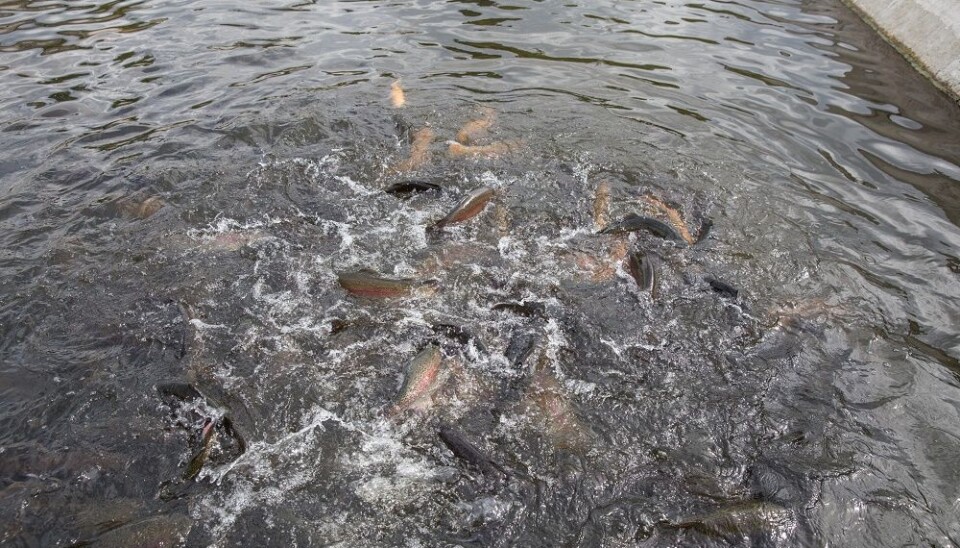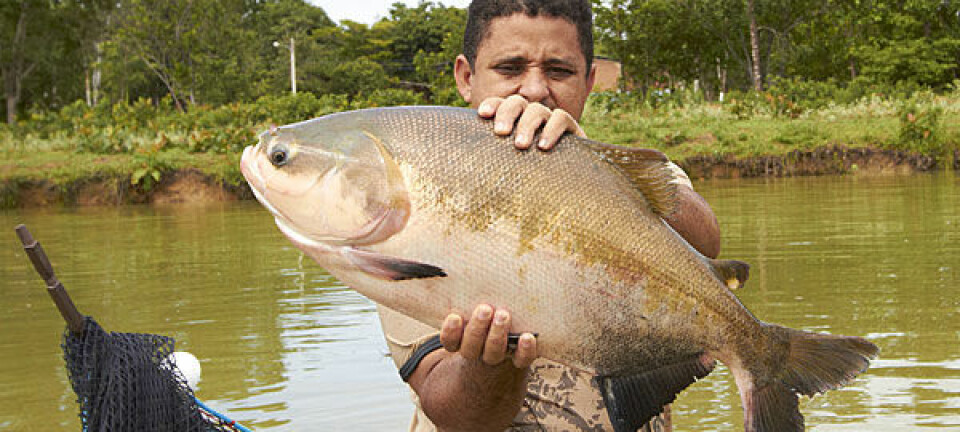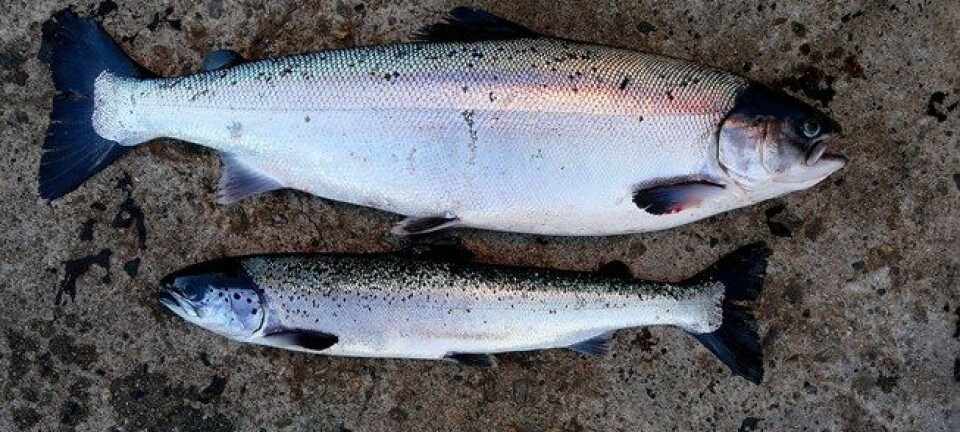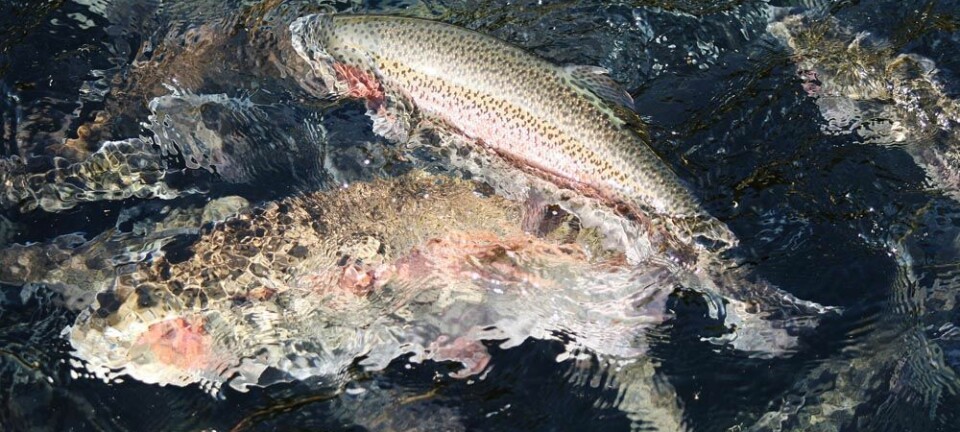An article from Norwegian University of Life Sciences (NMBU)

How environmental and dietary changes affect farmed fish
Aquaculture diet has become increasingly plant based. In addition, the industry faces environmental changes. Recent findings in salmonids when the two challenges are combined, give cause for concern.
Since 1980, the aquaculture industry has experienced an annual growth rate of 8.8 percent. Traditionally, fish meal and fish oil have been the main feed resources. However, due to the rapid growth in this sector these ingredients are becoming limited. Thus a transition towards a more plant-based diet has gradually taken place. How this plant-based diet affects the fish is widely debated.
In addition to this challenge, global warming that alters the fishes' environment is another worry for fish farming.
And to make things worse: according to a new study from the Norwegian University of Life Sciences (NMBU), it now appears that the combination of these two challenges can make things even more difficult.
Digestion trouble
In his research, Peyman Mosberian Tanha, a researcher at NMBU, found that feeding a challenging plant-based diet reduced the fishes' ability to digest both lipids and starch. Additionally, when subjecting the fish to an environment that simulates the effects global warming, the digestibility of lipids and starch was further reduced.
“This demonstrates that there is a connection between the diet and the fish capability to digest it under environmental challenges”, Mosberian Tanha says.
This effect on the fishes' digestive function and gut health could make them less resistant to disease and infection.
Combination of poor diet and environment
In his PhD thesis, Mosberian Tanha has incorporated the two-pronged challenge of dietary changes and environmental shifts in the fresh water system on the performance and health of rainbow trout. By exposing the fish to waters with lower oxygen levels, Mosberian Tanha simulated the effect global warming has on the fishes' environment.
“Individually, the challenge of a plant-based diet and suboptimal environment may not be a problem. However, taken together, I found that environmental changes associated with change in water quality may directly or indirectly affect the health and performance of the fish”, Mosberian Tanha says.
Weakened “first line of defence”
Mosberian Tanha’s research has looked at how dietary and environmental factors interact with the gut mucosa, a thin layer which lines body cavities and passages, and how these interactions may be harmful to the mucosal barrier.
“The mucosa has developed a barrier function which prevents the penetration of microorganisms and undesirable substances. Any challenge to the mucosal barrier beyond its tolerance adversely affects the function and integrity of this first line of defence, which in turn results in disturbance of the advanced gut functions”, Mosberian Tanha says.
Optimal diet to reduce stress
Mosberian Tanha also found that the plant-based diet led to enteritis (inflammation) in the hind-gut of the fish, but the degree of enteritis did not increase further at suboptimal environment.
Fish that were exposed to the same environmental challenges, but fed a more optimal diet, did not show any adverse effect on nutrient digestibility or gut health.
Mosberian Tanha foresees a need for further insights.
“Various species of fish may respond differently to the challenges. It is therefore important to gain more knowledge on mucosal barrier function and integrity in different fish and how the interaction of dietary and environmental challenges may affect mucosal barrier integrity and gut homeostasis”, Mosberian Tanha says.
An implication of Mosberian Tanha’s findings is the potential to improve performance and health of fish in a suboptimal environment by tailoring optimal diets to cope with the two-pronged challenges.
The study was conducted in cooperation with Wageningen University in the Netherlands.
Reference:
Tanha, M.T (2016) "Interactive effects of dietary and environmental challenges on digestive function and intestinal homeostasis in rainbow trout".

































